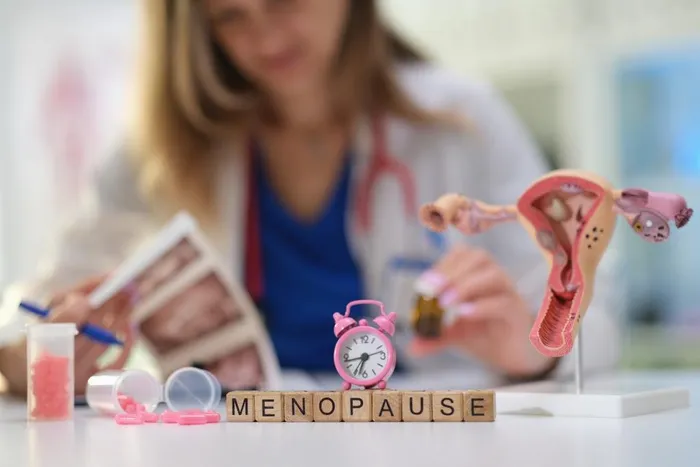Know your boobs, know your risk: The importance of screening during menopause
OCTOBER BREAST CANCER AWARENESS MONTH

Menopause is a natural biological process that occurs in women typically in their 40s and 50s, marked by a decline in oestrogen levels.
Image: Supplied / CANSA
As Global Breast Cancer Awareness Month approaches in October, the Cancer Association of South Africa (CANSA) is shining a spotlight on the crucial connection between menopause and breast cancer risk.
Menopause is a natural biological process that occurs in women typically in their 40s and 50s, marked by a decline in oestrogen levels. While menopause itself doesn't cause cancer, the hormonal changes during this phase can influence breast cancer risk.
According to Lorraine Govender, National Manager: Health Programmes at CANSA, breast cancer remains one of the most significant health challenges for South African women, particularly during and after menopause. "Every year CANSA aligns its campaigns to themes of early detection, symptom awareness, and access to screening and treatment," says Govender. "However, this year we are pivoting to the relationship between menopause and breast cancer."
Hormone replacement therapy (HRT) is sometimes prescribed to ease menopause symptoms, but long-term use of combined oestrogen-progesterone therapy can increase breast cancer risk. Govender advises women to be fully informed before choosing whether to use HRT. "One way to get reliable information is to talk to a healthcare provider," she says.
"The conversation needs to take into account personal and family cancer history, cardiovascular and liver health, and lifestyle factors such as weight, diet, exercise, alcohol consumption, and tobacco use."
Gwen Thabane's story is a powerful reminder of the importance of awareness and informed healthcare decisions. Diagnosed with hormone receptor-positive breast cancer, Gwen discovered a lump during a self-exam. "I have a family history of cancer and am always on the lookout for symptoms and signs," she says.
Her story shows that hormone-sensitive conditions don’t wait for menopause. Diagnosed with endometriosis and fibroids in her late 30s, Gwen had a hysterectomy that left her ovaries intact to delay early menopause. A few years later, she was diagnosed with hormone receptor-positive breast cancer. This is a type of cancer that uses oestrogen and progesterone as fuel.
“All three diagnoses were oestrogen-driven,” she explains.
CANSA advocates for women to take charge of their health by maintaining a healthy body weight, engaging in regular physical activity, avoiding alcohol and tobacco use, and keeping up with mammograms and other screenings. Govender encourages women to ask their healthcare providers questions about HRT, personal risks, and screening tests.
"Breast cancer doesn’t wait, and neither should you," Govender concludes. "Our call to action this October is simple: understand the role of hormones and menopause, talk to your healthcare provider, and take charge of your health today."
CANSA provides affordable Clinical Breast Examinations at its Care Centres and urges women to prioritise breast self-examinations and screenings for breast cancer.
Women over 40 are advised to undergo annual screenings.
Women can access mammograms at public hospital breast clinics with a referral letter from a medical professional or a CANSA nurse. Alternatively, contact the Radiological Society of SA (RSSA) at www.rssa.co.za to arrange a mammogram. Once again, women over 40 are advised to undergo annual screenings.